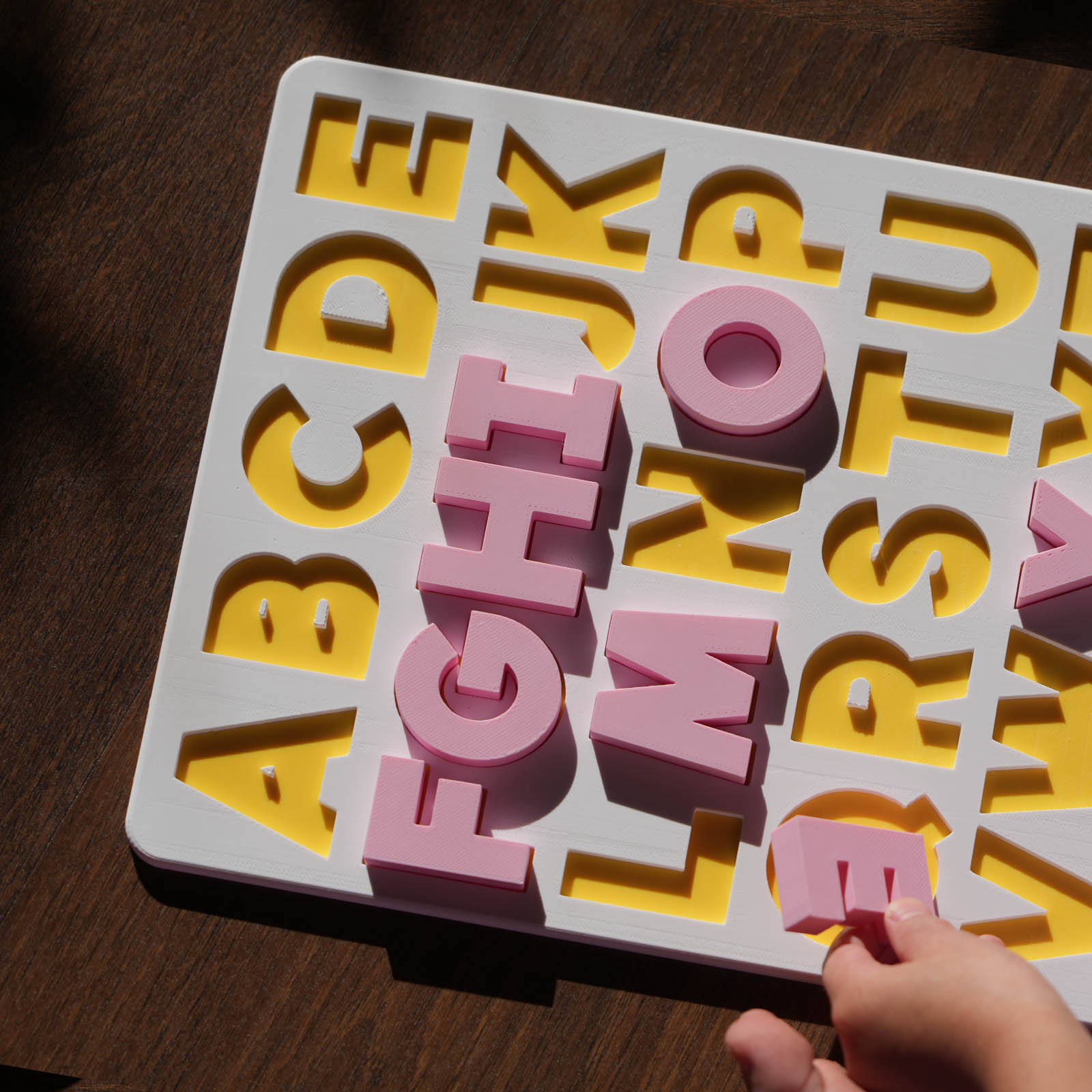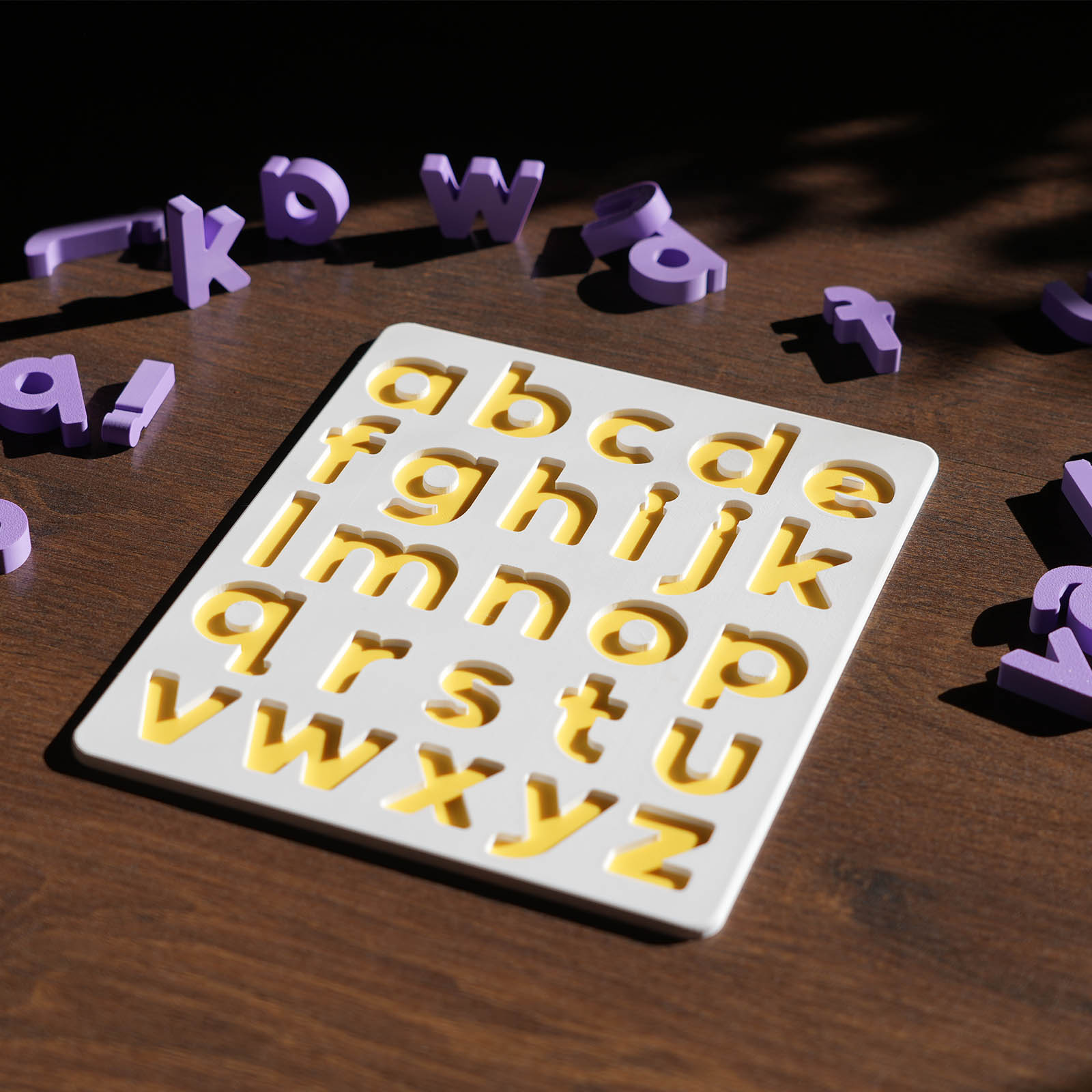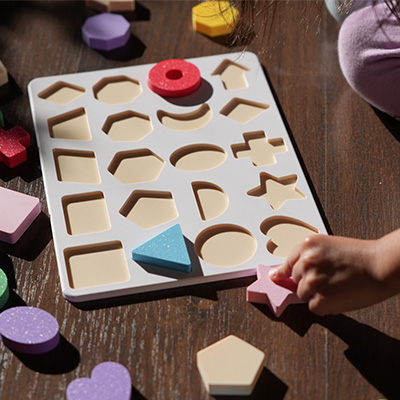🧒 A Playroom That Evolves With Your Child
The best playrooms aren’t packed with plastic or overflowing with novelty — they’re thoughtfully curated spaces where children can learn, explore, and grow over time.
Whether you’re designing a corner of your living room or an entire room, these five essentials support open-ended play, independence, and years of use.
1. 🧺 A Low, Open Toy Shelf
Montessori-style shelving encourages autonomy. Children can choose what to play with, return items themselves, and feel ownership of the space.
Choose:
- A shelf at your child’s height
- 6–8 toys displayed clearly (not crammed or hidden)
- Neutral, calming tones to reduce visual overwhelm
👉 Tip: Use shallow baskets and trays to group puzzles and small pieces.
2. 🧩 A Set of Foundational Puzzles
Well-made puzzles develop fine motor skills, spatial reasoning, and concentration — and never go out of style.
Start with:
- Alphabet Puzzle (for early literacy and letter recognition)
- Shapes Puzzle (for categorising and visual-spatial development)
- Numbers Puzzle (for counting, matching, and early maths)
- Australia Puzzle – coming soon! (for memory, logic, and cultural awareness)
At Frankie & Leo, our puzzles are crafted with smooth, tactile pieces and pastel hues that suit any space.
3. 📚 A Cosy Book Nook
Reading is a cornerstone of early development. A soft rug, floor cushion, and front-facing bookshelf invite daily story time — even when your toddler can’t yet read.
Include:
- Rotating selection of age-appropriate books
- Board books, rhyming stories, and non-fiction
- A few favourites that they’ll want to read over and over
4. 🎨 A Creative Station
Art materials spark imagination and support motor skills. A low table with easy-access supplies lets creativity flow freely — no adult setup required.
Equip with:
- Washable crayons, pencils, and paper
- Chunky brushes, stampers, and stickers
- Display clips or string to show off their work (and boost pride)
5. 🪑 Child-Sized Furniture
Small chairs and tables foster independence — from sitting to draw, to learning how to tidy up. Children feel more comfortable (and confident) when things are scaled to their size.
Look for:
- Rounded corners and sturdy construction
- Neutral or pastel finishes to match calm décor
- Pieces that double as workstations, snack spots, or puzzle zones
💡 Final Thought
You don’t need dozens of toys or a Pinterest-perfect space. Just a few intentional, well-designed elements can turn any area into a playroom that nurtures curiosity, confidence, and learning.
Explore Frankie & Leo’s collection of educational puzzles — the perfect fit for any evolving playroom.


